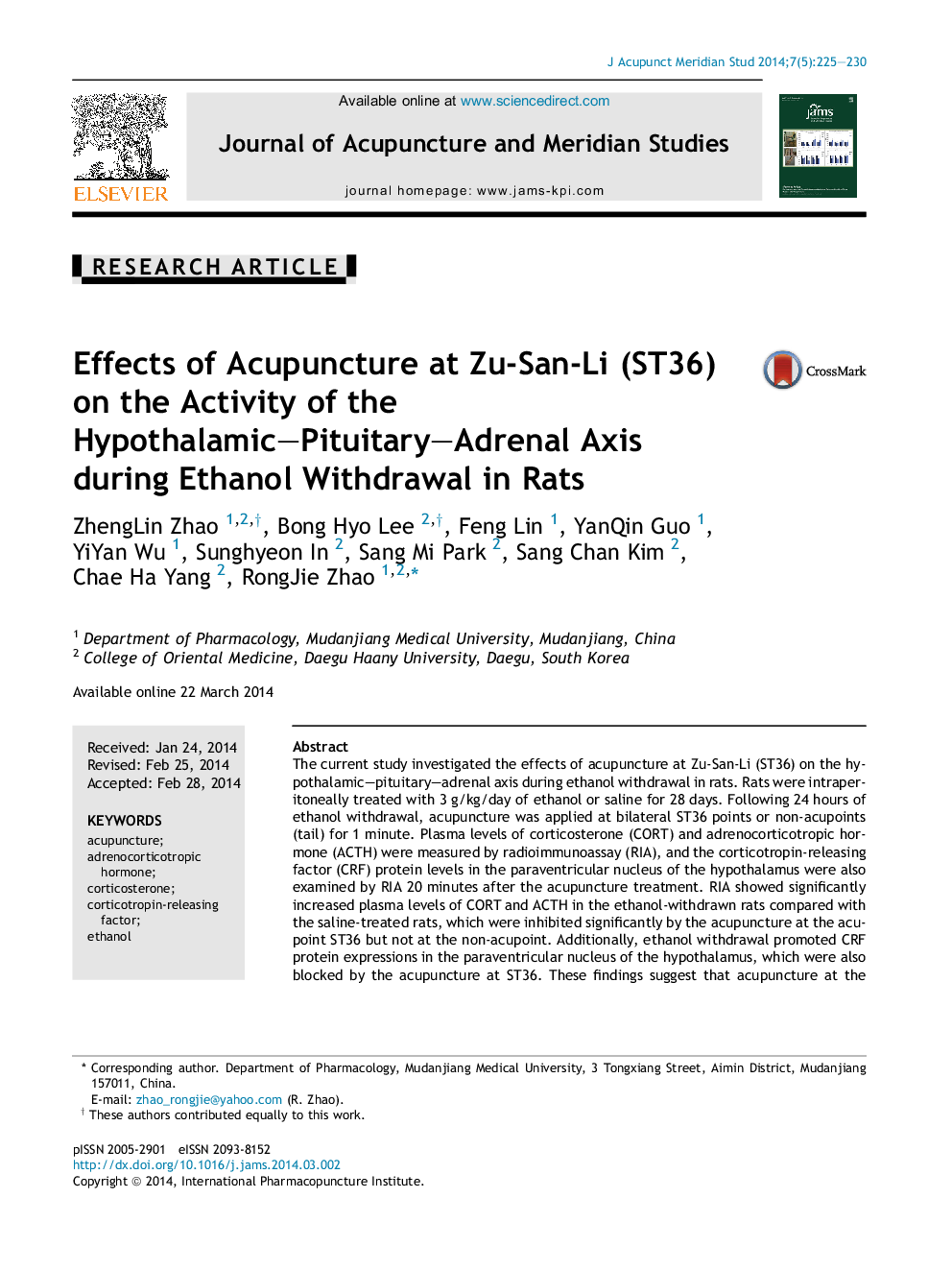| Article ID | Journal | Published Year | Pages | File Type |
|---|---|---|---|---|
| 3098601 | Journal of Acupuncture and Meridian Studies | 2014 | 6 Pages |
The current study investigated the effects of acupuncture at Zu-San-Li (ST36) on the hypothalamic–pituitary–adrenal axis during ethanol withdrawal in rats. Rats were intraperitoneally treated with 3 g/kg/day of ethanol or saline for 28 days. Following 24 hours of ethanol withdrawal, acupuncture was applied at bilateral ST36 points or non-acupoints (tail) for 1 minute. Plasma levels of corticosterone (CORT) and adrenocorticotropic hormone (ACTH) were measured by radioimmunoassay (RIA), and the corticotropin-releasing factor (CRF) protein levels in the paraventricular nucleus of the hypothalamus were also examined by RIA 20 minutes after the acupuncture treatment. RIA showed significantly increased plasma levels of CORT and ACTH in the ethanol-withdrawn rats compared with the saline-treated rats, which were inhibited significantly by the acupuncture at the acupoint ST36 but not at the non-acupoint. Additionally, ethanol withdrawal promoted CRF protein expressions in the paraventricular nucleus of the hypothalamus, which were also blocked by the acupuncture at ST36. These findings suggest that acupuncture at the specific acupoint ST36 can inhibit ethanol withdrawal-induced hyperactivation of hypothalamic–pituitary–adrenal axis, and it may be mediated via the modulation of hypothalamic CRF.
